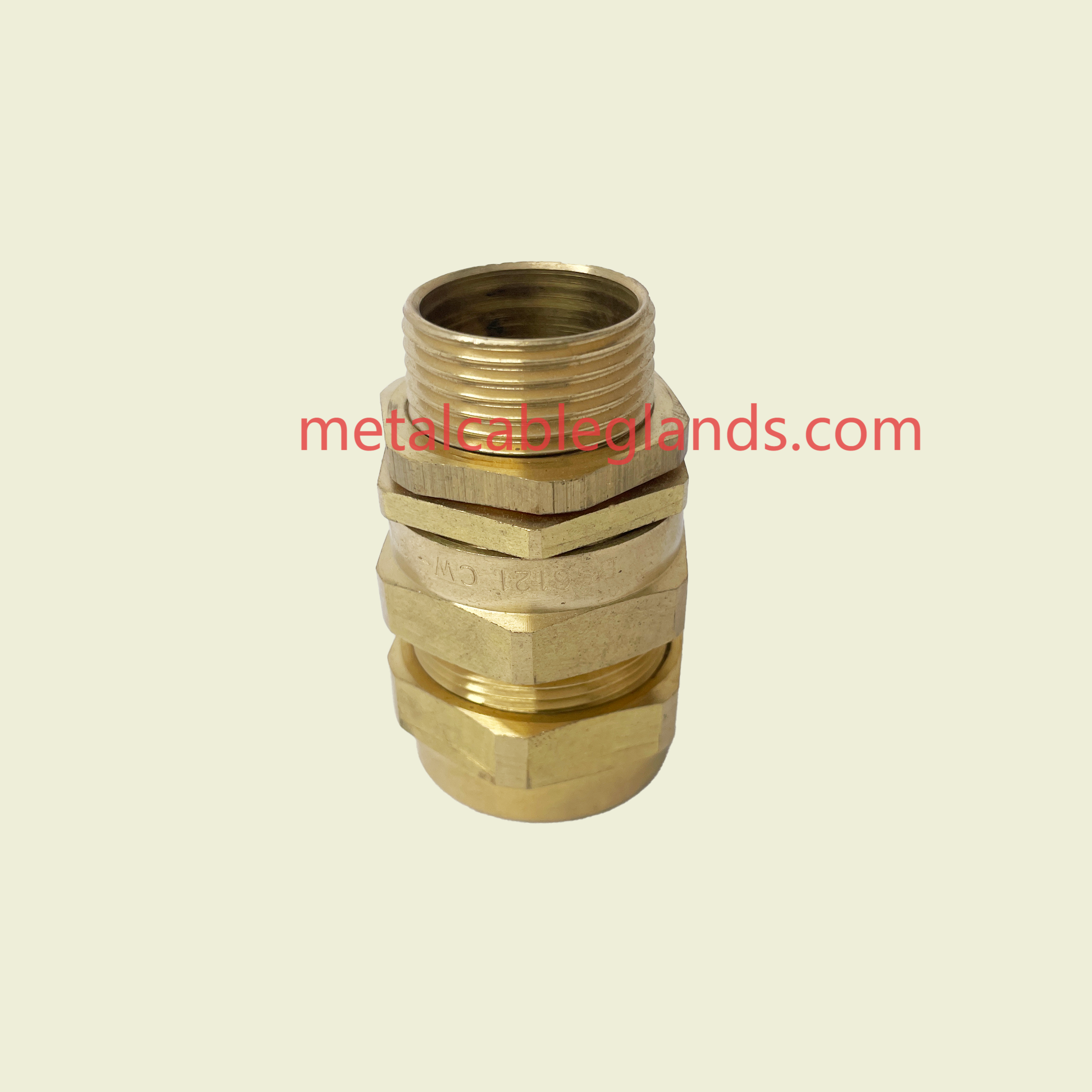Inquire
Functional Strength of Brass Cable Glands in Industrial Wiring

In many industrial electrical installations, the role of a Brass Cable Gland is critical for achieving secure cable termination, and its performance becomes especially important when systems must operate under demanding environmental or mechanical conditions; by incorporating the Brass Cable Gland into enclosure interfaces, engineers rely on its sealing capability, strain relief structure, and electrical grounding function to maintain system stability. Through the specialized manufacturing processes employed by Zhejiang Hongjue S Connector, these functional benefits are optimized to support long-term reliability in diverse applications.
A central performance advantage of brass glands lies in their ability to create an airtight and watertight seal around cables. This is achieved through compression mechanisms engineered to tightly grip the cable jacket without causing damage or deformation. The mechanical structure typically includes a sealing ring, compression nut, and body interface designed to apply uniform pressure when tightened. This prevents moisture ingress, dust intrusion, and contamination that could compromise sensitive electrical components. Industries such as automation, outdoor lighting, power distribution, and renewable energy rely heavily on this sealing reliability to maintain system uptime in harsh or unpredictable environments.
Another essential function is strain relief, which protects cable terminations from mechanical stress. Vibrations, cable pulling, accidental impact, and constant movement can introduce significant strain on internal conductors. Brass glands are engineered to absorb and distribute these forces, ensuring that the cable’s internal wiring remains intact. This is particularly valuable in applications involving motors, heavy machinery, and continuous-motion equipment, where sustained mechanical activity can quickly degrade improperly secured cables. The rigidity of brass contributes to stronger clamping force and more stable retention, minimizing the risk of cable slippage.
Electrical grounding capability is also one of the defining performance strengths of brass glands. For systems that require effective shielding or safe dissipation of electrical charges, brass provides a conductive path that enhances system safety. In armored cable applications, the gland body connects the cable’s armor to the enclosure, creating a secure grounding interface. Zhejiang Hongjue S Connector integrates high-precision machining to ensure consistent electrical contact surfaces, enabling predictable conductivity and improved electromagnetic performance. This is especially important for communication networks, industrial sensors, and high-frequency equipment where electrical noise must be minimized.
Temperature stability further supports the operational performance of brass glands. Electrical enclosures often experience wide temperature fluctuations due to heat-generating components, sunlight exposure, or ambient environmental shifts. Brass maintains dimensional stability and sealing force even in elevated temperatures, preventing thermal-induced material fatigue. When paired with high-quality elastomer seals, the gland can accommodate moderate thermal expansion of cables while preserving the enclosure’s protection level. This makes brass glands well suited for HVAC systems, solar installations, and equipment cabinets located outdoors.
Mechanical durability is another aspect that contributes to the superior performance of brass-based gland systems. Brass exhibits strong resistance to impacts, compression forces, and installation torque, enabling technicians to handle, tighten, and adjust the components without risk of cracking or structural failure. The smooth machining surfaces produced by Zhejiang Hongjue S Connector enhance user experience by reducing friction during installation and ensuring predictable thread engagement. This mechanical resilience also contributes to extended product lifespan, reducing maintenance frequency and lowering replacement costs.
In environments where chemicals, oils, or industrial fluids are present, the performance of brass cable glands remains consistent. Brass possesses natural resistance to many corrosive agents commonly found in manufacturing plants, processing facilities, and transportation systems. With additional plating or protective surface treatment, brass glands deliver even greater resistance to oxidation and chemical wear. This protective behavior ensures that sealing performance and mechanical strength remain stable throughout long-term exposure, increasing reliability in oil and gas applications, marine facilities, and industrial automation equipment.
Versatility in configuration and compatibility also enhances functional performance. Brass glands support a wide range of cable diameters, threading standards, and sealing requirements. This allows engineers to match the appropriate gland design to specific installation conditions, including armored cables, flexible conduits, and outdoor-rated wiring systems. Zhejiang Hongjue S Connector manufactures multiple gland types that incorporate dual sealing, extended threads, and enhanced compression geometry to support different operational environments, equipment constraints, and regulatory needs. The adaptability of brass glands ensures that they remain a preferred choice across global industries seeking dependable connection solutions.
For engineering teams and procurement specialists interested in exploring additional brass gland configurations, performance variations, and customized solutions, Zhejiang Hongjue S Connector offers detailed product categories and specification options at https://www.metalcableglands.com/product .
- Managerial Effectiveness!
- Future and Predictions
- Motivatinal / Inspiring
- Other
- Entrepreneurship
- Mentoring & Guidance
- Marketing
- Networking
- HR & Recruiting
- Literature
- Shopping
- Career Management & Advancement


 SkillClick
SkillClick